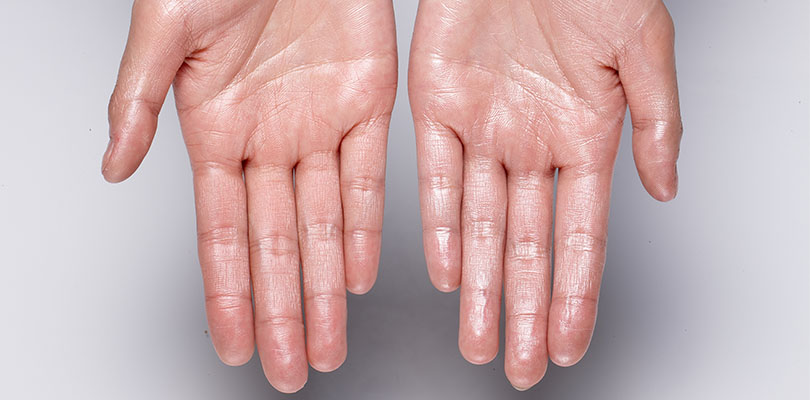Photo Credit: monkeybusinessimages / iStockphoto.com
How to be Happy
Everyone wants it. It is the brass ring that people spend their entire life striving to obtain. If you could buy it, it would be priceless. But you can’t buy it, trade for it or win it. You have to earn it.
It is happiness. It is the feeling of joy, contentment, peace, tranquility and satisfaction in life. If you have it, you want to keep it. If you don’t have it, it is something that you seek out on a daily basis. You will climb the highest mountain for it.
The good news is that you don’t have to climb any mountains, nor do you have to swim through shark-infested waters. You need only follow a simple path that many have traveled before you. There are no tricks, gimmicks or fads. There are only the results you seek.
Here’s how to be happy.
Decide What Happiness Means to You
If you are setting out to be happy, you better be sure you know what happiness is. Many people cannot find happiness because they do not even know what happiness looks like. They do not know how to identify it, measure it or experience it.
Maybe, just maybe, you are already happy, but since you can’t identify it, you think that you remain unhappy. Maybe this is as good as your life gets, and maybe this is good enough.
Happiness is completely subjective. No one can tell if you are happy or not. That choice is left to you.
Assess Your Unhappiness
People who are chronically unhappy spend a lot of time thinking about and dwelling on the reasons why they are not happy. If only you had more money. If only you had more friends. If only you were thinner, had better hair or met the person of your dreams, you would have the happiness you seek. All of these notions significantly stand in the way of your happiness.
Why? Because every time you think about what you don’t have, reality seems more undesirable. You find more and more ways that life isn’t perfect and unhappiness grows.
There are two great ways to counteract this unhelpful habit. The first is to practice gratitude. Gratitude means finding the best in every day. When you begin to search for the positives, you will see them more often. This will make the “if onlys” melt away to the background. There are several idioms that address this idea, like, “When life gives you lemons, make lemonade,” and “Even dark clouds have silver linings.” Happy people make the best of the situations they are in.
The other way to counteract your pessimism is to let go of it. Letting go may seem like a challenge, but it doesn’t have to be. To begin, relinquish the control that you try to have over the world around you. Rather than fighting against the current, let it carry you downstream. This idea plays on the power of acceptance rather than the discontentment of change. Believe in the idea that you can be happy regardless of your situation. True happiness does not come from “things.” It can only come from within.
Be Your Own Barometer
If you experience excessive sweating in the hands, armpits, feet or face, you may have a condition called hyperhidrosis. Learn about hyperhidrosis here.
Speaking of happiness coming from within, people who are chronically unhappy tend to seek the praise and reinforcement of others. Seeking out the positive words of others becomes an addictive quality because their kindness will surely boost your happiness for a period. You will feel accomplished and worthwhile, but the effects are brief. They quickly wear off because you cannot believe it for yourself, so you seek out praise of higher intensity and frequency to keep you feeling good. In reality, you are only setting yourself up for a painful fall.
Being your own barometer means that you can praise and reinforce yourself. It makes your happiness dependent on you and you alone, which is a liberating process. The best way to start this process is to list your positive traits, and focus on them often throughout the day.
Unhappy people speak negatively about themselves. This self-deprecation is actually self-defeating. Decide to love yourself by pointing out your positives. After enough repetition, you will start to believe it more while reducing your reliance on the praise of others.
Accomplish Your Goals
Happy people struggle. It might sound counterintuitive, but those that have everything handed to them are not the happiest people. Happy people work to accomplish challenging and complicated tasks because they understand the opportunity for tremendous payouts when the job is done.
What have you accomplished lately? Your snap reaction might be to say “nothing,” but you could be missing some significant accomplishments. Consult with your supports to gain their point of view about your triumphs.
Moving forward, set goals for yourself. These provide life purpose and direction while distracting you from hardships. At the onset, choose goals that are focused on tangible, real-life accomplishments. Build something, plant flowers, rearrange your furniture, or go for a walk with your friend. This will provide immediate feedback of your work. From there, your goals can become more elaborate and involved.
Spread the Love
The happiest people spend less time focusing on their own happiness and more time selflessly giving back to others. They do this through a range of behaviors that begin with the simple act of being kind to others and end with the donation of incredible amounts of time and energy.
If you are looking to give back as a way to foster the desired happiness, beware. This must be done in moderation. Otherwise, you risk depending on the positive reactions of others to facilitate your happiness. Happy people are well equipped to balance selfishness with selflessness. You really need both.
Inside Out
Is it possible to be happy when your body is failing you? Absolutely, but if your happiness is lagging, consider how you are treating your physical state. Eating well, exercising and getting enough rest will make a positive difference with your happiness both physically and emotionally.
One example of the power of caring for your body is the notion of a runner’s high. Many runners report that they can achieve a state of euphoria while running. Though this may be difficult to believe, there is science to back it up. Exercise releases a number of chemicals into your brain including endorphins and neurotransmitters like serotonin that assist with improved mood.
Small changes to your diet — including introducing supplements or herbs for depression — as well as thinking patterns, goals and socialization can yield massive results to your happiness. It will not happen on its own. You must grasp this opportunity for happiness. It’s the best thing you can do.







